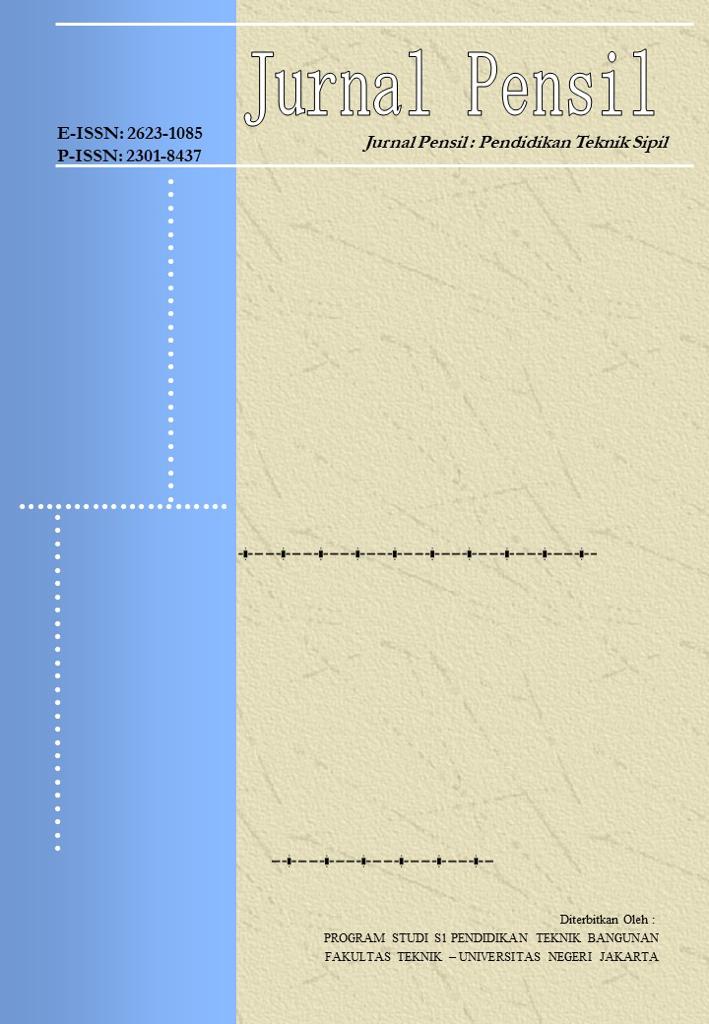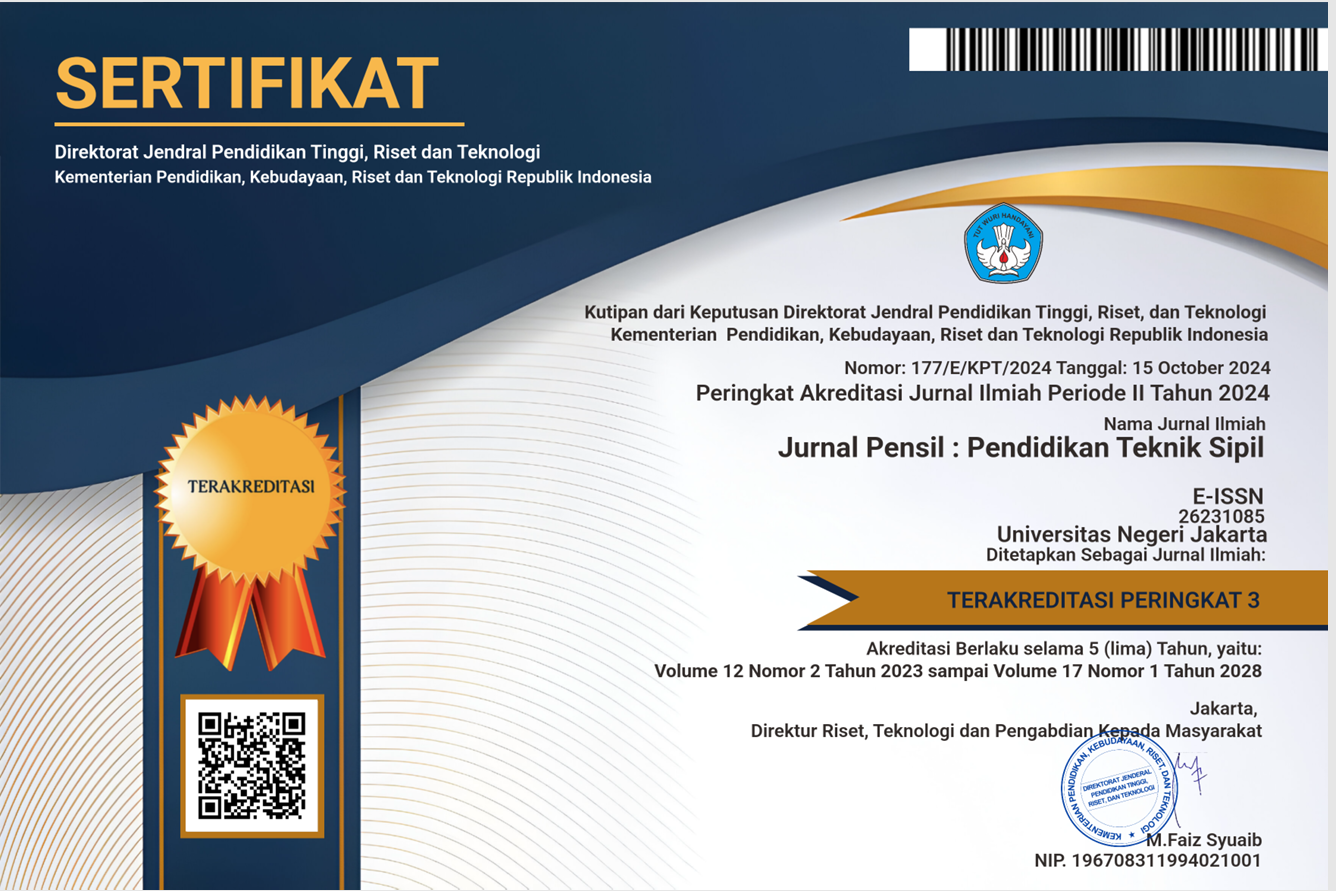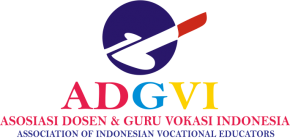COMMUNITY RESPONSE (CRM)-BASED PRIORITY SCALE SYSTEM FOR TRANSJAKARTA ROUTE REPAIR in DKI JAKARTA PROVINCE
DOI:
https://doi.org/10.21009/jpensil.v14i1.47880Keywords:
Priority Scale System, Quick Community Response (CRM), Transjakarta Route Improvements , Priority Scale Assessment ManualAbstract
This research aims to develop a priority scale system (PSS-TJ) based on Quick Community Response (QCR) for effective and efficient improvements to the TransJakarta route. Using aqualitative approaches with a case study in DKI Jakarta over 6 months, this research involved in- depth interviews with key stakeholders, fields observations of infrastructure conditions, and secondary data analysis from 13 official complaints channels. The research results identified six main criteria for priorities repairs, with the highest weights being the type of crack (0.25) and the width of the crack (0.20). The Road Damage Index (RDI) mathematical model was developed for an objectives assessment of the level of road damage, with Corridor 13 having the highest Road Damage Index (RDI) score (15), indicating the most urgent repairs needs. The integration of CRM data in decision making has been proven to increase the accuracy and responsiveness of TransJakarta infrastructure management. This system has the potential to significantly improve the quality of TransJakarta services, with a projected increase in travel time efficiency of up to 15% and user satisfaction of 20%. Furthermore, this Community Response (QCR) based priority scale system (PSS-TJ) can be an innovative model for Transjakarta road improvement systems in other cities in Indonesia, enabling resources optimization and increasing public participation in urban transportation infrastructure management.
References
Agarwal, P. K., Patil, P. K., & Mehar, R. (2013). A Methodology for Ranking Road Safety Hazardous Locations Using Analytical Hierarchy Process. 2nd Conference of Transportation Research Group of India (2nd CTRG), 104, 1030–1037. https://doi.org/10.1016/j.sbspro.2013.11.198
Andrews, N., Bennett, N. J., Le Billon, P., Green, S. J., Cisneros-Montemayor, A. M., Amongin, S., Gray, N. J., & Sumaila, U. R. (2021). Oil, fisheries and coastal communities: A review of impacts on the environment, livelihoods, space and governance. Energy Research & Social Science, 75, 102009. https://doi.org/https://doi.org/10.1016/j.erss.2021.102009
Barbosa, S. B., Ferreira, M. G. G., Nickel, E. M., Cruz, J. A., Forcellini, F., Garcia, J., & Guerra, J. B. S. O. de A. (2017). Multi-criteria analysis model to evaluate transport systems: An application in Florianópolis, Brazil. Transportation Research Part A: Policy and Practice, 96, 1–13. https://doi.org/https://doi.org/10.1016/j.tra.2016.11.019
Borghetti, F., Beretta, G., Bongiorno, N., & De Padova, M. (2024). Road infrastructure maintenance: Operative method for interventions’ ranking. Transportation Research Interdisciplinary Perspectives, 25, 101100. https://doi.org/https://doi.org/10.1016/j.trip.2024.101100
Bortolini, R. F., Cortimiglia, M. N., Danilevicz, A. M. F., & ... (2018). Lean Startup: a comprehensive historical review. Management …. https://doi.org/10.1108/MD-07-2017-0663
Braun, V., & Clarke, V. (2021). Thematic Analysis: A Practical Guide (First). https://uk.sagepub.com/en-gb/eur/thematic-analysis/book248481
Broniewicz, E., & Ogrodnik, K. (2020). Multi-criteria analysis of transport infrastructure projects. Transportation Research Part D: Transport and Environment, 83, 102351. https://doi.org/https://doi.org/10.1016/j.trd.2020.102351
Brown, M., & Wilson, D. (2018). Fast Community Response System in Local Governance. Public Administration Review, 78(4), 65–80. https://doi.org/https://doi.org/10.1111/puar.12345
Cats, O., Susilo, Y. O., & Reimal, T. (2017). The prospects of fare-free public transport : evidence from Tallinn. Transportation, 44, 1083–1104. https://doi.org/10.1007/s11116-016-9695-5
Corazza, M. V., Mascio, P. Di, & Moretti, L. (2016). Managing sidewalk pavement maintenance: A case study to increase pedestrian safety. Journal of Traffic and Transportation Engineering (English Edition), 3(3), 203–214. https://doi.org/10.1016/j.jtte.2016.04.001
Creswell, J. W., & Creswell, J. D. (2017). Research Design: Qualitative, Quantitative, and Mixed Methods Approaches. Sage Publications.
dell’Olio, L., Ibeas, A., & Cecin, P. (2011). The quality of service desired by public transport users. Transport Policy, 18(1), 217–227. https://doi.org/https://doi.org/10.1016/j.tranpol.2010.08.005
Diaz-martinez, L. A., Fisher, G. R., Esparza, D., Bhatt, J. M., Arcy, C. E. D., Apodaca, J., Brownell, S., Corwin, L., Davis, W. B., Floyd, K. W., Killion, P. J., Madden, J., Marsteller, P., Mayfield-meyer, T., Mcdonald, K. K., Rosenberg, M., Yarborough, M. A., & Olimpo, J. T. (2019). Recommendations for Effective Integration of Ethics and Responsible Conduct of Research (E/RCR) Education into Course-Based Undergraduate Research Experiences: A Meeting Report. https://doi.org/10.1187/cbe.18-10-0203
Elvik, R. (2011). Developing an accident modification function for speed enforcement. Safety Science, 49(6), 920–925. https://doi.org/https://doi.org/10.1016/j.ssci.2011.02.016
Firman, F., Idrus, I. A., & Rahmawati, R. (2024). Public Participation in Rapid Response Services for the Sustainability of Jakarta Smart City. Croatian Comparative Public Administration, 24(3), 423–446. https://doi.org/https://doi.org/10.31297/hkju.24.3.4
Gáspár, L. (2017). Management aspects of road pavement rehabilitation. Građevinar, 69(1), 31–40. https://doi.org/https://doi.org/10.14256/JCE.1629
Gebresselassie, M., & Sanchez, T. W. (2019). Banister : Inequality in Transport. Journal of the American Planning Association, 85(4), 593–594. https://doi.org/10.1080/01944363.2019.1641385
Haas, R., Felio, G., Lounis, Z., & Falls, L. C. (2009). Measurable performance indicators for roads : Canadian and international practice.
Hadi, P. L., Sutandi, A. C., Santosa, W., & Wasanta, T. (2024). The Impact of Intelligent Transportation System in Reliability of Bus Rapid Transit in the City of Bandung. Journal for Transportation Studies, 1(2), 72–78.
Hasibuan, R. P., & Surbakti, M. S. (2019). Study of Pavement Condition Index (PCI) relationship with International Roughness Index (IRI) on Flexible Pavement. MATEC Web of Conferences, 03019(258). https://doi.org/https://doi.org/10.1051/matecconf/201925803019
Hassan, M. M., Shafiq, M. A., & Mourad, S. A. (2021). Experimental study on cracked steel plates with different damage levels strengthened by CFRP laminates. International Journal of Fatigue, 142, 105914. https://doi.org/https://doi.org/10.1016/j.ijfatigue.2020.105914
Haviz, N. M., Utama, G. B., Suryobuwono, A. A., & Si, S. (2020). Transjakarta Bus Rapid Transit Development Strategy in Supporting Intermodal Integration. GROSTLOG, 170–177.
Hu, X., Daganzo, C., & Madanat, S. (2015). A reliability-based optimization scheme for maintenance management in large-scale bridge networks. Transportation Research Part C: Emerging Technologies, 55, 166–178. https://doi.org/https://doi.org/10.1016/j.trc.2015.01.008
Kamenchukov, A., Yarmolinsky, V., & Pugachev, I. (2018). Evaluation of road repair efficiency in terms of ensuring traffic quality and safety. Transportation Research Procedia, 36, 627–633. https://doi.org/https://doi.org/10.1016/j.trpro.2018.12.142
Kitchin, R., & Lauriault, T. P. (2018). Towards critical data studies: Charting and unpacking data assemblages and their work (Issue July 2014).
Loilatu, M. J., Rahmawat, D. E., & Efendi, D. (2020). Manajemen Transportasi Cerdas BRT Jakarta. TRANSFORMASI: Jurnal Manajemen Pemerintahan, 12(1), 93–105. https://doi.org/10.33701/jtp.v12i1.894
Loprencipe, G., & Pantuso, A. (2017). A Specified Procedure for Distress Identification and Assessment for Urban Road Surfaces Based on PCI. Coatings, 7(65), 1–26. https://doi.org/10.3390/coatings7050065
Macharis, C., & Bernardini, A. (2015). Reviewing the use of Multi-Criteria Decision Analysis for the evaluation of transport projects: Time for a multi-actor approach. Transport Policy, 37. https://doi.org/http://dx.doi.org/10.1016/j.tranpol.2014.11.002
Markolf, S. A., Hoehne, C., Fraser, A., Chester, M. V, & Underwood, B. S. (2019). Transportation resilience to climate change and extreme weather events – Beyond risk and robustness. Transport Policy, 74, 174–186. https://doi.org/10.1016/j.tranpol.2018.11.003
Neves, L. A. C., Frangopol, D., & Cruz, P. J. S. (2006). Probabilistic Lifetime-Oriented Multiobjective Optimization of Bridge Maintenance: Single Maintenance Type. Journal of Structural Engineering, 9445, 991–1005. https://doi.org/10.1061/(ASCE)0733-9445(2006)132
Ng, M., Lin, D. Y., & Waller, S. T. (2009). Optimal Long-Term Infrastructure Maintenance Planning Accounting for Traffic Dynamics. Computer-Aided Civil and Infrastructure Engineering, 24, 459–469. https://doi.org/10.1111/j.1467-8667.2009.00606.x
Osorio-Lird, A., Chamorro, A., Videla, C., Tighe, S., & Torres-Machi, C. (2018). Application of Markov chains and Monte Carlo simulations for developing pavement performance models for urban network management. Structure and Infrastructure Engineering, 14(9), 1169–1181. https://doi.org/10.1080/15732479.2017.1402064
Pregnolato, M., Ford, A., Wilkinson, S. M., & Dawson, R. J. (2017). The impact of flooding on road transport: A depth-disruption function. Transportation Research Part D, 55, 67–81. https://doi.org/10.1016/j.trd.2017.06.020
Santos, J., Ferreira, A., & Flintsch, G. (2015). A life cycle assessment model for pavement management: methodology and computational framework. International Journal of Pavement Engineering, 16(3), 268–286. https://doi.org/10.1080/10298436.2014.942861
Santos, J., Ferreira, A., & Flintsch, G. (2017). A multi-objective optimization-based pavement management decision-support system for enhancing pavement sustainability. Journal of Cleaner Production, 164, 1380–1393. https://doi.org/https://doi.org/10.1016/j.jclepro.2017.07.027
Shi, Y., Xiang, Y., Xiao, H., & Xing, L. (2021). Joint optimization of budget allocation and maintenance planning of multi-facility transportation infrastructure systems. European Journal of Operational Research, 288(2), 382–393. https://doi.org/https://doi.org/10.1016/j.ejor.2020.05.050
Siswanto, H., Supriyanto, B., Pranoto, Prihatditya, R. P., & Friansa, M. A. (2019). District road maintenance priority using analytical hierarchy process. AIP Conference Proceedings, 2114, 1–9. https://doi.org/10.1063/1.5112490
Teltayev, B., & Radovskiy, B. (2018). Predicting thermal cracking of asphalt pavements from bitumen and mix properties. Road Materials and Pavement Design, 19(8), 1832–1847. https://doi.org/10.1080/14680629.2017.1350598
Useche, S. A., Alonso, F., Montoro, L., & Esteban, C. (2019). Explaining self-reported tra ffi c crashes of cyclists: An empirical study based on age and road risky behaviors. Safety Science, 113, 105–114. https://doi.org/10.1016/j.ssci.2018.11.021
Useche, S. A., Gómez, V., Cendales, B., & Alonso, F. (2018). Working Conditions, Job Strain, and Traffic Safety among Three Groups of Public Transport Drivers Sergio. Safety and Health at Work, 9, 454–461. https://doi.org/10.1016/j.shaw.2018.01.003
Wandelt, S., Sun, X., & Zhang, A. (2023). Towards analyzing the robustness of the Integrated Global Transportation Network Abstraction (IGTNA). Transportation Research Part A: Policy and Practice, 178, 103838. https://doi.org/https://doi.org/10.1016/j.tra.2023.103838
Wang, W., Yan, X., Huang, H., Chu, X., & Abdel-Aty, M. (2011). Design and verification of a laser based device for pavement macrotexture measurement. Transportation Research Part C: Emerging Technologies, 19(4), 682–694. https://doi.org/https://doi.org/10.1016/j.trc.2010.12.001
Wang, W., Yang, H., & Jing, S. (2024). The development of priority decision model for old urban community renovation in China. In Scientific Reports (Vol. 14, Issue 2334). Nature Publishing Group UK. https://doi.org/10.1038/s41598-024-54883-3
Yin, R. K. (2018). Case Study Research and Applications: Design and Methods (6th Editio). Sage Publications. https://us.sagepub.com/en-us/nam/case-study-research-and applications/book250150.
Yu, B., Lu, Q., & Xu, J. (2013). An improved pavement maintenance optimization methodology: Integrating LCA and LCCA. Transportation Research Part A: Policy and Practice, 55, 1–11. https://doi.org/https://doi.org/10.1016/j.tra.2013.07.004
Zheng, Y., Kong, H., Petzhold, G., Barcelos, M. M., Zegras, C. P., & Zhao, J. (2021). User satisfaction and service quality improvement priority of bus rapid transit in Belo Horizonte, Brazil. Case Studies on Transport Policy, 9(4), 1900–1911. https://doi.org/https://doi.org/10.1016/j.cstp.2021.10.011
Zumrawi, M. M. E. (2015). Survey and Evaluation of flexible Pavement Failures. International Journal of Science and Research (IJSR), 4(1). https://doi.org/10.13140/RG.2.2.21030.19523
Downloads
Published
How to Cite
Issue
Section
License
Copyright (c) 2025 Hairrudin hairrudin

This work is licensed under a Creative Commons Attribution-ShareAlike 4.0 International License.











.png)
.png)
1.png)

